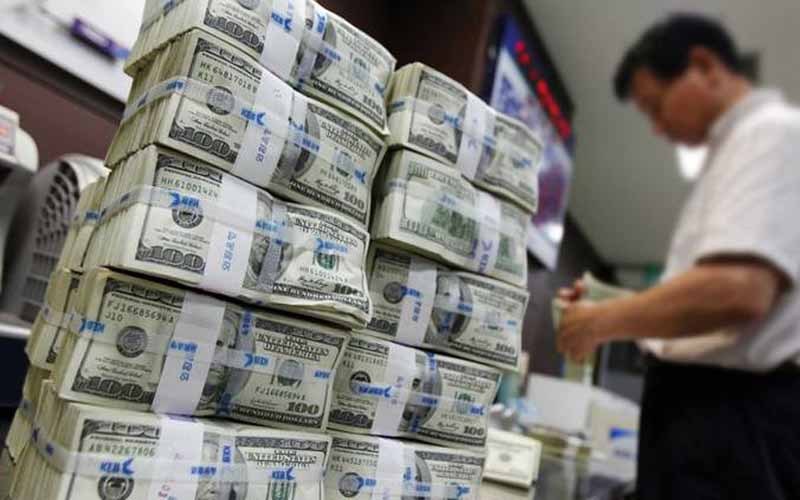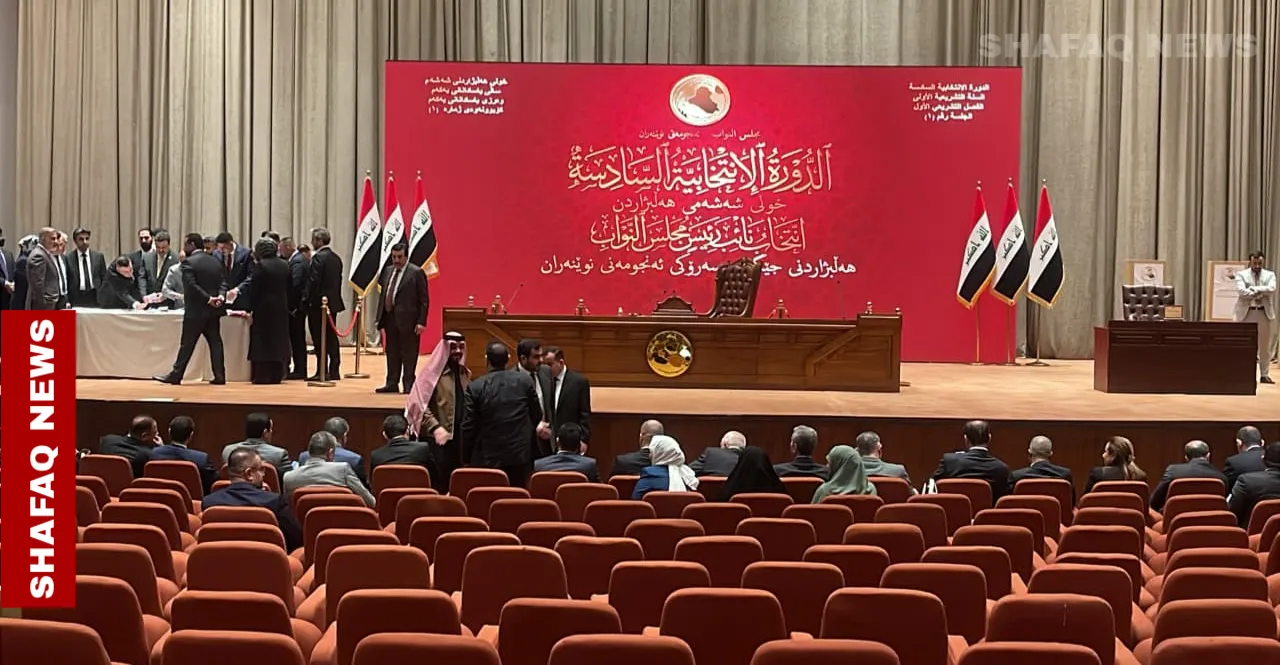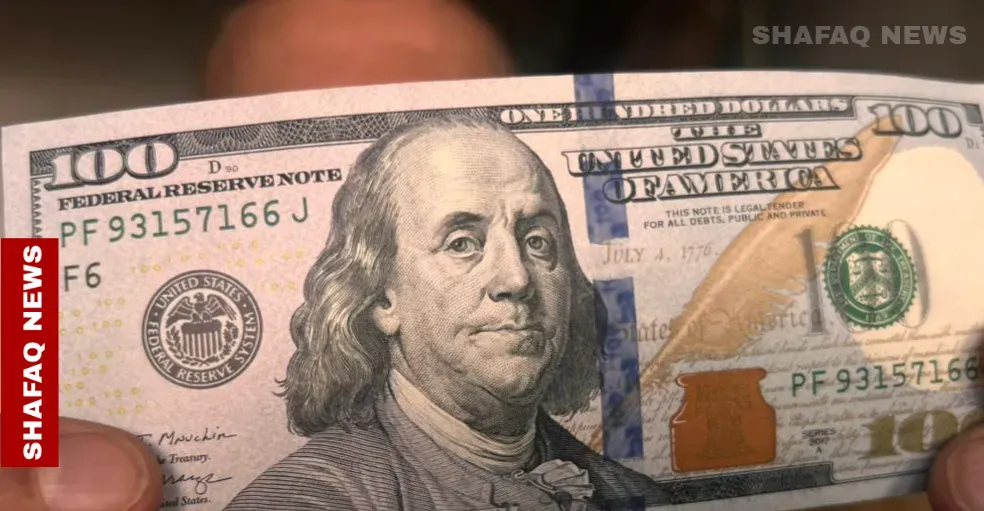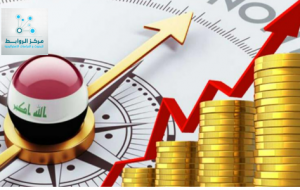First government comment on the rise in the dollar exchange rate in Iraq
 The Prime Minister’s Advisor for Financial Affairs, Mazhar Muhammad Salih, confirmed Sunday, January 4, 2026, that the fluctuation in the exchange rate is “temporary” and does not reflect a structural imbalance, especially since it has practically become detached from the level of income and consumption, and its effect has been transferred to the asset sector, which is not directly related to the stability of daily living.
The Prime Minister’s Advisor for Financial Affairs, Mazhar Muhammad Salih, confirmed Sunday, January 4, 2026, that the fluctuation in the exchange rate is “temporary” and does not reflect a structural imbalance, especially since it has practically become detached from the level of income and consumption, and its effect has been transferred to the asset sector, which is not directly related to the stability of daily living.
Saleh said in a statement: “The limited fluctuations witnessed in the parallel exchange market are merely temporary and ineffective reactions that came in response to the launch of the latest fiscal discipline package, which included decisions aimed at re-examining the paths of public spending in general and enhancing the efficiency of public revenues in particular, especially with regard to expanding and controlling tax and customs bases.”
He added, “Such movements are normal market behavior when receiving new signals from fiscal policy, as supply and demand forces tend to test these signals and adapt to them in stages, before returning to more stable paths that are in line with the new economic and financial fundamentals.”
Saleh continued, “Thus, the current fluctuations in the parallel market do not reflect a structural imbalance, but rather represent a temporary adaptation phase to regulatory tools that are essentially aimed at enhancing financial and monetary stability in the medium term. Likewise, the fluctuations observed in the parallel exchange market are limited in impact and do not affect the stability of the general price range in our country, which has maintained a low inflation rate of around 2.5% annually.”
The government advisor pointed out that “this is due to the convergence of three effective economic policies. The first is the monetary policy, which adopts a fixed official exchange rate for the Iraqi dinar against the dollar, at a level of 1,320 dinars per dollar, which provides a stable nominal anchor for prices. The second is the fiscal policy, which exercises support on a wide scale, as support constitutes approximately 13% of the gross domestic product, which mitigates the transmission of price shocks to living standards, especially in basic goods and services.”
He continued, “The third is the trade policy in price defense; in addition to the subsidized food basket, the modern market system (hypermarkets) has emerged as the ‘qualitative countermeasure’ to the effects of the exchange market, as it works to absorb what can be called the ‘colored noise’ resulting from confused information in the parallel exchange market, and transform it into white noise with stable content in terms of prices and consumption.”
Saleh noted that “the parallel exchange market no longer has any significant impact on living standards, after it became practically detached from income and consumption levels, and its impact shifted to the asset sector, which is not directly related to the stability of daily living.”
Burathanews.com

 On Tuesday evening, members of the Iraqi Parliament elected Farhad Amin Atrushi, a member of the Kurdistan Democratic Party, as the second deputy speaker of the parliament, after a third round of voting was held due to the failure to achieve a parliamentary majority in the previous two rounds, in which Shakhwan Abdullah, a member of the Kurdistan Democratic Party, competed with Ribwar Karim, a member of the Al-Mawqif bloc, on Monday evening.
On Tuesday evening, members of the Iraqi Parliament elected Farhad Amin Atrushi, a member of the Kurdistan Democratic Party, as the second deputy speaker of the parliament, after a third round of voting was held due to the failure to achieve a parliamentary majority in the previous two rounds, in which Shakhwan Abdullah, a member of the Kurdistan Democratic Party, competed with Ribwar Karim, a member of the Al-Mawqif bloc, on Monday evening. The government has intensified its efforts to achieve the highest international credit rating, given the importance of this step in gaining the confidence of international investors, facilitating the attraction of foreign investments, reducing borrowing costs, and enhancing confidence in the national economy.
The government has intensified its efforts to achieve the highest international credit rating, given the importance of this step in gaining the confidence of international investors, facilitating the attraction of foreign investments, reducing borrowing costs, and enhancing confidence in the national economy. Iran’s Fars News Agency revealed on Tuesday that more than $2 billion of frozen Iranian assets had been released by a neighboring country, likely Iraq.
Iran’s Fars News Agency revealed on Tuesday that more than $2 billion of frozen Iranian assets had been released by a neighboring country, likely Iraq. For many years, the Iraqi economy has suffered from a clear paradox: possessing substantial financial resources, yet lacking the capacity to translate these resources into genuine and sustainable development. The relative financial stability Iraq enjoys today does not necessarily reflect a sound economic structure; rather, it masks accumulated structural imbalances stemming from excessive dependence on oil, an inflated role for the state, and weak economic and administrative institutions. Therefore, any serious discussion of reforming the Iraqi economy must begin with a realistic diagnosis of these imbalances before proceeding to prescribe reform measures.
For many years, the Iraqi economy has suffered from a clear paradox: possessing substantial financial resources, yet lacking the capacity to translate these resources into genuine and sustainable development. The relative financial stability Iraq enjoys today does not necessarily reflect a sound economic structure; rather, it masks accumulated structural imbalances stemming from excessive dependence on oil, an inflated role for the state, and weak economic and administrative institutions. Therefore, any serious discussion of reforming the Iraqi economy must begin with a realistic diagnosis of these imbalances before proceeding to prescribe reform measures.